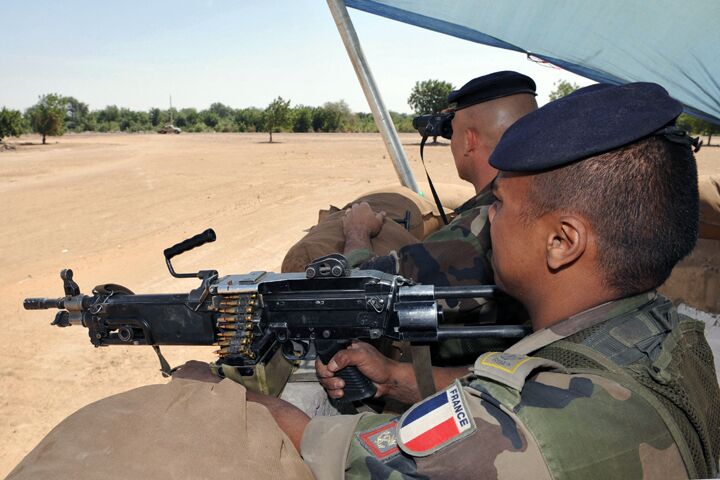
France, UAE, Qatar Conduct Joint Military Exercises
In a demonstration of their growing affinity, France, the United Arab Emirates, and Qatar began their first-ever war games in the Persian Gulf on Monday.
The joint military exercise, which will last until March 5, is no small venture. It involves 1,500 French, 2,500 uae and 1,300 Qatari troops, operating on land, sea and air in half a dozen warships and dozens of aircraft and armored vehicles. The operation is taking place on uae territory and in international waters—not coincidentally, close to the Strait of Hormuz.
Although France and uae officials deny any link between the timing of these maneuvers and the stand-off between the West and Iran over Tehran’s nuclear program, the Jerusalem Postreports the “war games will likely put France and the Gulf nations in a better state of preparedness for any future confrontation with Iran” (February 26).
These exercises come on the heels of Paris signing a deal with the uae to become the first Western nation outside the United States to build a permanent military base in the Persian Gulf. These two recent events are indicative of a trend emerging in Middle Eastern politics.
In recent months, Europe has been looked to by Middle Eastern nations as a potential source of stability and protection in the Middle East, a role the United States has traditionally held, as evident in the 1991 Gulf War.
With American troops now bogged down in Afghanistan and Iraq and U.S. presidential candidates clamoring for their return home, it’s not surprising to see Gulf states such as the uae interested in diversifying their alliance portfolios.
France, a prominent member of the European Union, has answered the call, reflecting a growing trend in European politics to give a helping hand militarily to troubled regions, particularly troubled regions that are rich in resources. Don’t be surprised if other European states intensify their security and military involvement in the region as well.
Europe has a vested interest in the stability of the Middle East; nearly two thirds of the world’s oil supply originates there. But there are reasons other than oil to believe France and other EU nations will continue to expand their role in Middle Eastern security affairs.
The augmentation of a Europe-Arab alliance brings to mind a fascinating end-time prophecy, described in Psalm 83. The fulfillment of this prophecy, among others, is a strong proof of the existence of an Almighty Creator.
To learn more about this coming European-Arabian alliance, read The King of the South.
